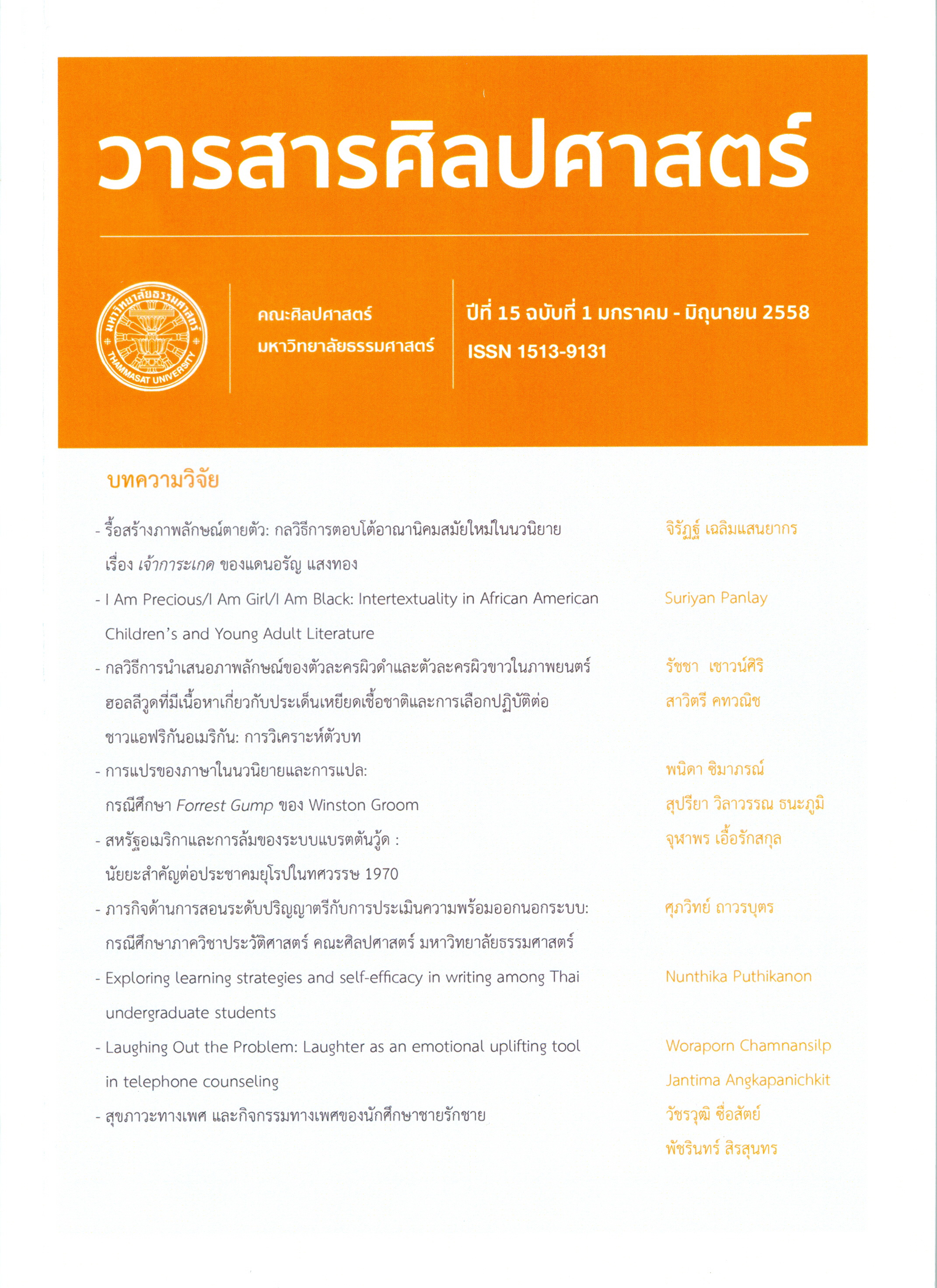รื้อสร้างภาพลักษณ์ตายตัว: กลวิธีการตอบโต้อาณานิคมสมัยใหม่ในนวนิยายเรื่อง เจ้าการะเกด ของแดนอรัญ แสงทอง
Main Article Content
บทคัดย่อ
บทความวิจัยนี้มุ่งวิเคราะห์นวนิยาย เจ้าการะเกด ของแดนอรัญ แสงทอง ด้วยแนวคิดนิเวศสำนึกสตรีนิยมเชิงวิพากษ์และแนวคิดนิเวศสำนึกหลังอาณานิคม จากการศึกษาพบว่านวนิยาย เจ้าการะเกด มีการตอบโต้กับภาพลักษณ์ตายตัวซึ่งเป็นรูปแบบของอาณานิคมใหม่ของตะวันตก ด้วยการนำเสนอตัวละครหญิงที่ผูกโยงอยู่กับวิถีชีวิตและวัฒนธรรม ขณะที่ตัวละครชายผูกโยงอยู่กับป่าและวิถีชีวิตของนายพราน อีกทั้งยังตอบโต้วาทกรรมการพัฒนาของตะวันตกด้วยการนำเสนอให้เห็นว่าป่ามีระบบระเบียบเฉพาะที่ไม่อาจจำกัดความได้ตามหลักเหตุผลนิยม อย่างไรก็ตามนวนิยาย เจ้าการะเกด มิได้นำเสนอทางออกด้วยการให้กลับไปใช้ชีวิตอยู่กับป่า ตามภาพลักษณ์ตายตัวของคนเมืองที่มองว่าป่าคือสถานที่พักผ่อนหย่อนใจ หากแต่นำเสนอการปรับตัวเพื่อความอยู่รอดไม่ว่าจะอยู่ป่าหรือเมือง โดยนัยหนึ่งการปรับตัวคือการทำให้เกิดความไหลลื่นและคลุมเครือจนไม่อาจนิยามภาพลักษณ์ตายตัวได้ ซึ่งเป็นกลวิธีหนึ่งในการตอบโต้อาณานิคมแบบใหม่ของตะวันตก
คำสำคัญ เจ้าการะเกด ภาพลักษณ์ตายตัว การวิจารณ์เชิงนิเวศสำนึก สตรีนิยม หลังอาณานิคม
The purpose of this paper is to analyze Chao Karaked, a novel written by Dan-aran Saengthong,relying on the application of constructionist ecofeminism and postcolonial ecocriticism. The results from this study show that there is a resistance in Chao Karaked towards the stereotypes obtained from a western worldview. The image of female characters is intertwined with cultural and traditional ways of life while the lives of male characters bond with forest and hunting. Besides, the novel also portrays a defense against western ideology; it presents one crucial idea about nature which has rules and these rules cannot be defined by the application of rationalism. Even though leisure pursuing in nature becomes the stereotype of urban people, Chao Karaked does not suggest that living in forest is a solution. On the contrary, this novel aims to present an idea of adaptability to survive no matter in forest or city. In other words, the implication of adaptability in relation to ambiguous quality suggests that it cannot be framed as a stereotype which this also strengthens a defense against the influence of neocolonialism.
Keywords: Chaokaraked, stereotype, ecocriticism, feminism, neocolonialism


